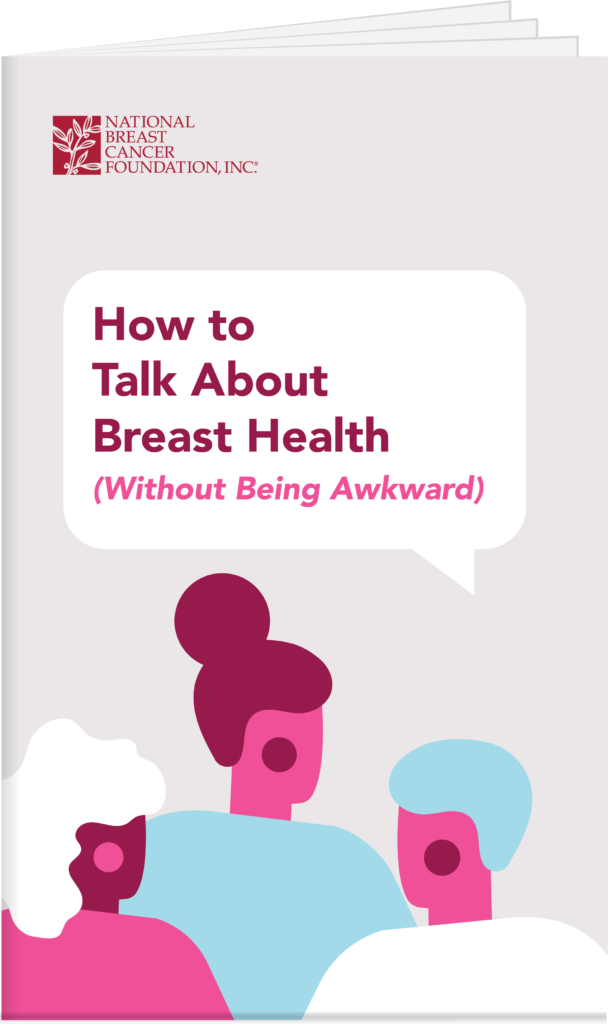


Talking about breast health doesn’t have to be uncomfortable.
While it may initially be awkward, talking openly about breast health helps remove stigmas surrounding women’s bodies and women’s health. Open conversations create a comfortable environment that supports health and wellness. It can even increase early detection, which saves lives.
During Women’s Health Week, we want to talk about breast health and make it easier for you to do the same! Thanks to our friends at AMN Healthcare for helping us spread this important message.
That is a great question!
The reasons can vary from uncertainty and lack of information to a sense of stigma and discomfort in talking through tough topics. However, nothing is too taboo if it means saving a life.
When we better understand the reasons many women hesitate to discuss breast health, we can address them and make room for conversation, growth, and change.
The following three steps can make it a little easier to discuss breast health with others:
Make sure you have a safe space and comfortable environment for talking about breast health. For instance, busy office spaces, public transportation, and a kids’ sporting event might not be the best options for this discussion. Instead, look for good opportunities—perhaps while taking a walk, having lunch, or catching up with a friend on the phone.
You can share your own experience: “I’m kind of dreading my upcoming mammogram, but I know that it’s important. Have you scheduled yours yet?” You can also let your friend or relative know that you care, and encourage them with words of love and support.
It is important to know that:
Once you know the basics, you can more readily share that information with others. For example, you could offer: “We hear about breast cancer all the time, but I was surprised by how much I didn’t know about taking care of my breast health.”
Honesty is always a good policy. While conversations about breast health can be hard—particularly with those who would prefer not to have them—that doesn’t mean we should avoid them.
Here are three common stigmas and ways to approach them:
Stigma: Talking about my body is personal and private.
Reality: Everyone needs support and encouragement to prioritize their health. Find someone you feel comfortable speaking to about your health—a partner, friend, loved one, or doctor.
Stigma: Breasts are sexual.
Reality: Breasts are a normal part of our bodies. Breast cancer is prevalent, so we can’t be afraid to talk about it.
Stigma: We just don’t talk about breast health or breast cancer in my family.
Reality: We know more about breast cancer than we ever have before. We can change the generational pattern and emphasize early detection for all.
If you’re struggling to bring up the topic, try saying this: “I think of breast cancer as a disease my mom or grandma should worry about—not me—but I just saw a story about a 30-year-old facing breast cancer.”
Let’s face it: For many reasons, women don’t always prioritize their own health. But the more we focus on health, wellness, and self-care, the more we can support others in our lives—we are worth it.
To support more open and honest conversations about breast health, you can get our eBook, How to Talk about Breast Health. This free guide shares detailed prompts, ways to handle difficult conversations, and support for you and other women in your life.
You have the power to break stigmas and change lives. This guide can help break the ice and the awkwardness.

Donations are always appreciated, but there are lots of great ways to get involved.
Please I need the email materials on how to talk about breast cancer
Hello! You can download the free eBook by clicking here: https://www.nationalbreastcancer.org/resources/how-to-talk-about-breast-health/
Or visit our website for additional information about breast cancer: nbcf.org